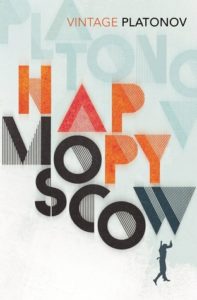 Title: Mouthful of Birds (Goodreads)
Title: Mouthful of Birds (Goodreads)
Author: Samanta Schweblin
Translator: Megan McDowell
Published: Oneworld Publications, 2019
Pages: 240
Genres: Short Stories
My Copy: ARC from Netgalley
Buy: Amazon, Book Depository, Kindle, Wordery (or visit your local Indie bookstore)
Longlisted for the Man Booker International Prize 2019
Samanta Schweblin has almost become a household name. Her novella Fever Dreams has been one of the most talked about books in translation in recent years. It won so many awards, including the Shirley Jackson Award (2017), The Tournament of Books (2018), it made the Man Booker International Prize shortlist (2017) and the Warwick Prize for Women in Translation longlist (2017). Needless to say, when it was announced Mouthful of Birds was getting an English translation there was plenty of buzz surrounding it.
I first discovered Samanta Schweblin from the New York Review of Books podcast, they were talking about three Argentinean authors about to take the world by storm, Pola Oloixarac, Mariana Enríquez and Samanta Schweblin. Naturally I had to read the three books that came out around the same time. Random tangent, both Samanta Schweblin and Pola Oloixarac have books out this year, so where is the next Mariana Enríquez? Out of the three it was Fever Dreams that got all the attention, but for me Things We Lost In The Fire was the true highlight.
I feel like the buzz now for Mouthful of Birds is just people projecting their love for Fever Dreams onto it. There is something rugged and unfinished about this collection of short stories that did not sit right with me. I think a truly great short story collection have the stories complements each other and often share an overarching theme. Take Things We Lost In The Fire by Mariana Enríquez (also translated by Megan McDowell) for example. Each story delivers a powerful punch and complement the collection as a whole. Now looking at Mouthful of Birds, it does not have that same feeling, it is just a group of stories anthologised for the purpose of publishing.
I see so many people loving this book and it always seems to be referencing the same stories, like the one with the merman. My opinion is they liked the individual stories they reference but nothing is really said about the complete collection. I know what I like and fairytale retellings and mythological based stories are not for me, so this is the main reason Mouthful of Birds did not work for me. I know short story collections are hard to review as a whole collection, so people point out the stories they love. I prefer to read something where the stories all work together and offer so much more than a good tale.
Mouthful of Birds will serve well for the readers interested in the whole creative process. This is a collection of her earlier short stories. There are fragments of ideas that are being explored in Mouthful of Birds that could blossom into future novels. I see elements of Fever Dreams taking form in this collection and get the feeling this collection was only published because of all the hype surrounding Samanta Schweblin. While this was not the book for me, I know many people will enjoy reading more from Schweblin. I personally recommend picking up Things We Lost In The Fire by Mariana Enríquez instead.

 Title: The World Goes On (
Title: The World Goes On ( Title: Things We Lost in the Fire (
Title: Things We Lost in the Fire ( Title: Happy Moscow (
Title: Happy Moscow ( Title: The Tsar of Love and Techno (
Title: The Tsar of Love and Techno ( Title: A Young Doctor's Notebook (
Title: A Young Doctor's Notebook ( Title: The Yellow Wallpaper and Other Stories (
Title: The Yellow Wallpaper and Other Stories ( Title: The Unamericans (
Title: The Unamericans ( Title: The American Lover (
Title: The American Lover ( Title: Merciless Gods (
Title: Merciless Gods (